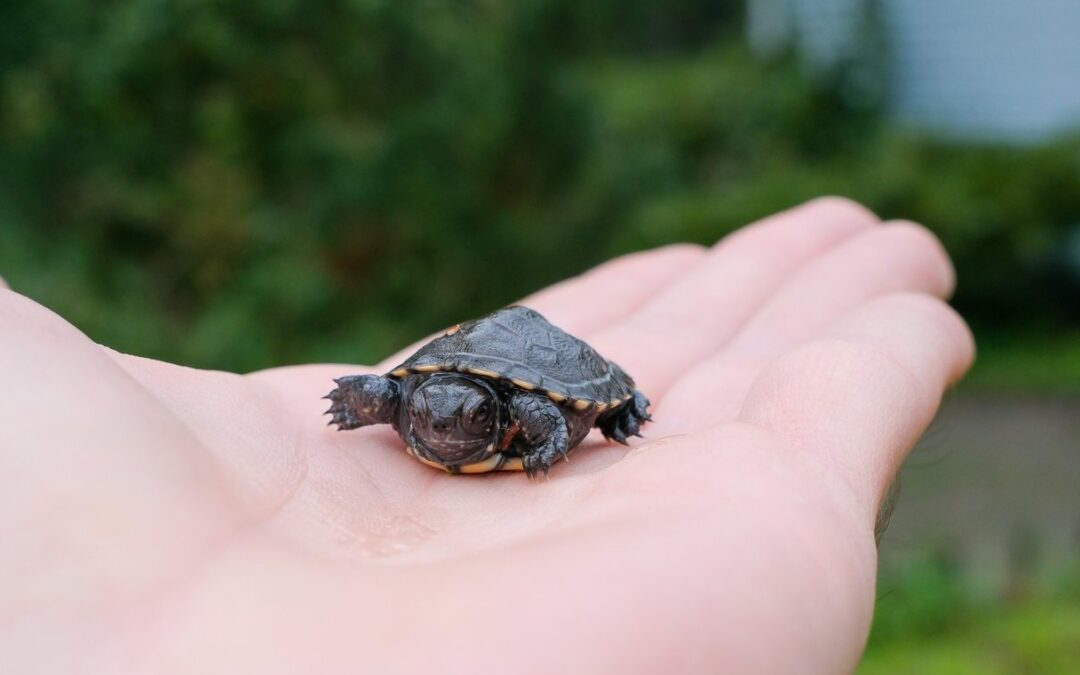Keep our news free from ads and paywalls by making a donation to support our work!

Notes from Poland is run by a small editorial team and is published by an independent, non-profit foundation that is funded through donations from our readers. We cannot do what we do without your support.
Biologists at the University of Łódź have reported initial success in their programme to raise European pond turtles – the only species of turtle native to Poland – with the aim of reintroducing them into the wild in the region, where they are believed to be extinct.
In an update issued on Wednesday regarding their efforts to “restore the king of Polish waters”, the researchers revealed that all 50 of the turtles they reared last year have survived. In the wild, only around 1% of hatchlings survive due to predation.
It represents a major step in a long-term project to restore European pond turtles in Łódź province, where they are considered extinct. Around 150 turtles are expected to be released into two landscape parks in the province over the coming years.
The programme, run jointly by the Łódź Orientarium Zoo and several regional institutions, raises young turtles in controlled yet naturalistic conditions to protect them from predators during their most vulnerable early years.
The hatchlings are brought to the zoo from Polesie National Park in eastern Poland, where a successful breeding programme has helped establish the country’s largest European pond turtle population, estimated at around 1,500.
They then spend three years in specially prepared indoor enclosures designed to mimic natural conditions while keeping out threats such as foxes and raccoons.
The turtles are exposed to fluctuating temperatures, sunlight and natural UVB, and must find food themselves – measures designed to maintain their instincts for survival in the wild.
Two cohorts of 50 turtles have already been brought to the zoo, in September 2024 and September 2025. The first group has achieved a 100% survival rate, with the university reporting that the turtles “have grown significantly and are in excellent condition.”
“Bigger equals safer,” the university’s department of biology wrote in a Facebook post. “Breeding allows the young to grow larger, which dramatically increases their chances of survival once released into the wild.”
A North American snapping turtle was discovered in a Polish village.
It shows signs of living in the wild for a long time, meaning it may be one of the turtles brought to Poland 25 years ago by a Pole living in the US who wanted to “enrich” the wildlife https://t.co/Qle1Z0ArCV
— Notes from Poland 🇵🇱 (@notesfrompoland) March 31, 2023
Once common across central Poland, the European pond turtle declined sharply due to habitat loss, water pollution, wetland drainage and predation by invasive species. The turtles were placed under strict protection as early as 1935 and are now threatened with extinction.
The long-term goal of the project is to rebuild self-sustaining wild populations and restore the species’ presence in the region.
“The European pond turtle has disappeared from our region mainly due to human activity – wetland drainage, pollution and predation. Now, by joining forces, we have a chance to reverse this trend,” said the department of biology.
Fourteen lynx cubs have been born as part of a reintroduction programme in Poland to boost numbers of the endangered species https://t.co/Y5eZpOyOyv pic.twitter.com/RccjRPpAv8
— Notes from Poland 🇵🇱 (@notesfrompoland) September 14, 2021

Notes from Poland is run by a small editorial team and published by an independent, non-profit foundation that is funded through donations from our readers. We cannot do what we do without your support.
Main image credit: University of Łódź

Alicja Ptak is deputy editor-in-chief of Notes from Poland and a multimedia journalist. She has written for Clean Energy Wire and The Times, and she hosts her own podcast, The Warsaw Wire, on Poland’s economy and energy sector. She previously worked for Reuters.




















